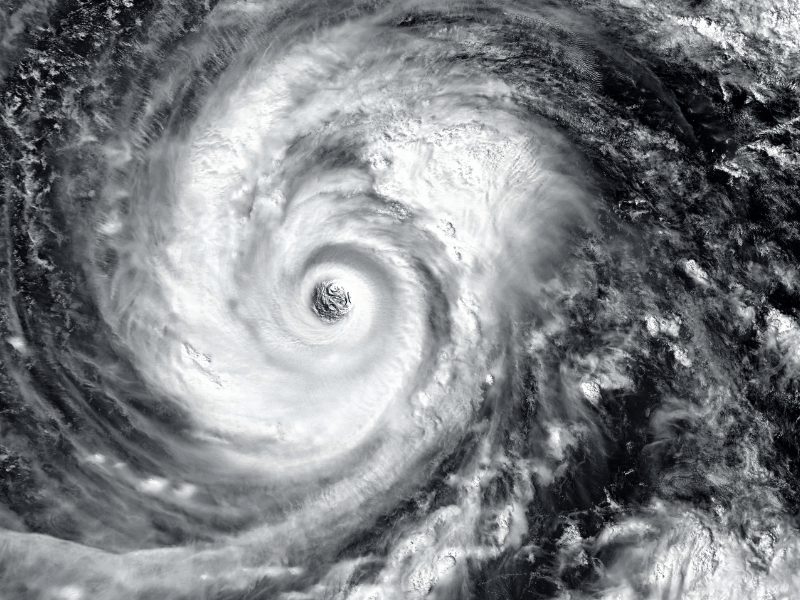
When you think of hurricane season in South Carolina, you might envision powerful winds, torrential rainfall, and intense flooding. Fire hazards aren’t usually top of mind—but they should be.
Hurricanes or tropical storms can damage electrical systems, disrupt smoke alarm and fire sprinkler functions, or ignite a spark that turns into a dangerous blaze. It’s crucial for both home and business owners to be aware of these risks and plan ahead of time with critical safety measures.
How Hurricanes Can Lead to Fires
Hurricanes and tropical storms create an unpredictable mix of hazards that can increase the likelihood of a fire:
- Electrical system damage: Power line outages, faulty wires from water exposure, or damage to transformers and electrical panels can spark a fire once the power is restored.
- Generator misuse and malfunctions: When placed too close to buildings or used with faulty wires, portable generators can overheat and cause an electrical fire.
- Fire protection system failures: High winds, sharp debris, or flood waters can damage the fire sprinkler plumbing, alarm panels, and sensors, which leaves buildings vulnerable if a fire sparks.
- Hazardous material spills: Buildings that store flammable liquids or chemicals can experience leaks during severe hurricanes and storms fire, which increases explosion risks.
In other words, the same hurricane that knocks out your power can also disable the exact systems built to alert you to a fire. This is why post-storm inspections of fire safety equipment are so crucial.
Why Post-Storm Inspections Are Essential
After a hurricane, many home and business owners focus on the obvious repairs like roof damage or water removal. Meanwhile, other fire hazards often skirt below the radar until it’s too late. A post-storm inspection from a licensed fire protection contractor can help with the following:
- Inspect and test the building’s fire safety equipment, including the sprinklers, alarms, and extinguishers.
- Identify corrosion or water damage to the electrical wires.
- Ensure all fire pumps and back-up power systems are functional.
- Check that your alarm monitoring devices are back online.
Even if a system looks unaffected, even minor issues—such as a soaked circuit board or a shifting sprinkler head—can mean the difference between quick fire detection and a total loss. Scheduling an inspection right after the storm passes is one of the smartest moves you can make.
Precautions to Take Before a Hurricane
Preparation can significantly reduce the risk of post-storm fire hazards. So, be sure to implement these safety measures before the peak months of hurricane season in South Carolina roll through.
- Service all your fire safety equipment. Annual maintenance will ensure that sprinklers, alarms, and fire suppression systems are in optimal condition before a storm hits.
- Secure outdoor furniture and tools. High winds can turn propane tanks, grills, or flammable materials into fire hazards if they break loose. Meanwhile, heavy furniture pieces could turn into debris that crash into power lines and cause an outage.
- Know how to shut off your utilities. In some emergencies, you’ll need to cut the power or gas to prevent a fire from starting.
- Establish a clear fire evacuation plan. Hurricanes challenge safe movement, so make sure you’re familiar with multiple exit routes in case a fire sparks either during or after the storm.
- Protect critical records in a safe, accessible place. Store all your insurance documents, emergency contact numbers, or other crucial records in a waterproof, fire-resistant container.
Fire Safety Steps After a Hurricane
Once the skies are calm, and local officials announce that it’s safe to return, take the following actions to minimize your post-storm fire risk:
- Do not turn power back on yourself. Have a licensed electrician inspect all the wiring first.
- Schedule a fire safety equipment inspection. Confirm that your fire alarms, sprinklers, and extinguishers are operational.
- Thoroughly check for visible fire hazards. Look for any exposed wires, fuel leaks, or damage to appliances.
- Ventilate before using your appliances. If the building has been closed up, noxious fumes might start to accumulate.
- Test all your back-up power sources. Make sure generators and battery back-ups are in safe, optimal working order.
Taking these steps will catch a problem early in order to spare you from the devastation of a fire right after the hurricane.
The Business Case for Fire Preparedness
For business owners, the stakes of a post-storm fire can be even higher. Beyond the threat to employees and customers, fires can cause operational shutdowns that often stretch on for weeks or months.
What’s more, insurance policies might not cover all of the financial losses— especially if a claims investigator determines that a lack of maintenance or inspections contributed to the fire damage.
Documenting your business’s fire protection measures before and after a storm will not offer safety protections, but can also strengthen the validity of potential insurance claims you need to file.
Be Storm-Ready and Fire-Safe
Hurricane season in South Carolina can be unpredictable, but fire safety measures shouldn’t be. Schedule a pre-season inspection with our team at A&A Fire Protection—we’ll make sure your home or business is ready for all fire risk—from wind or rain damage to electrical hazards.



